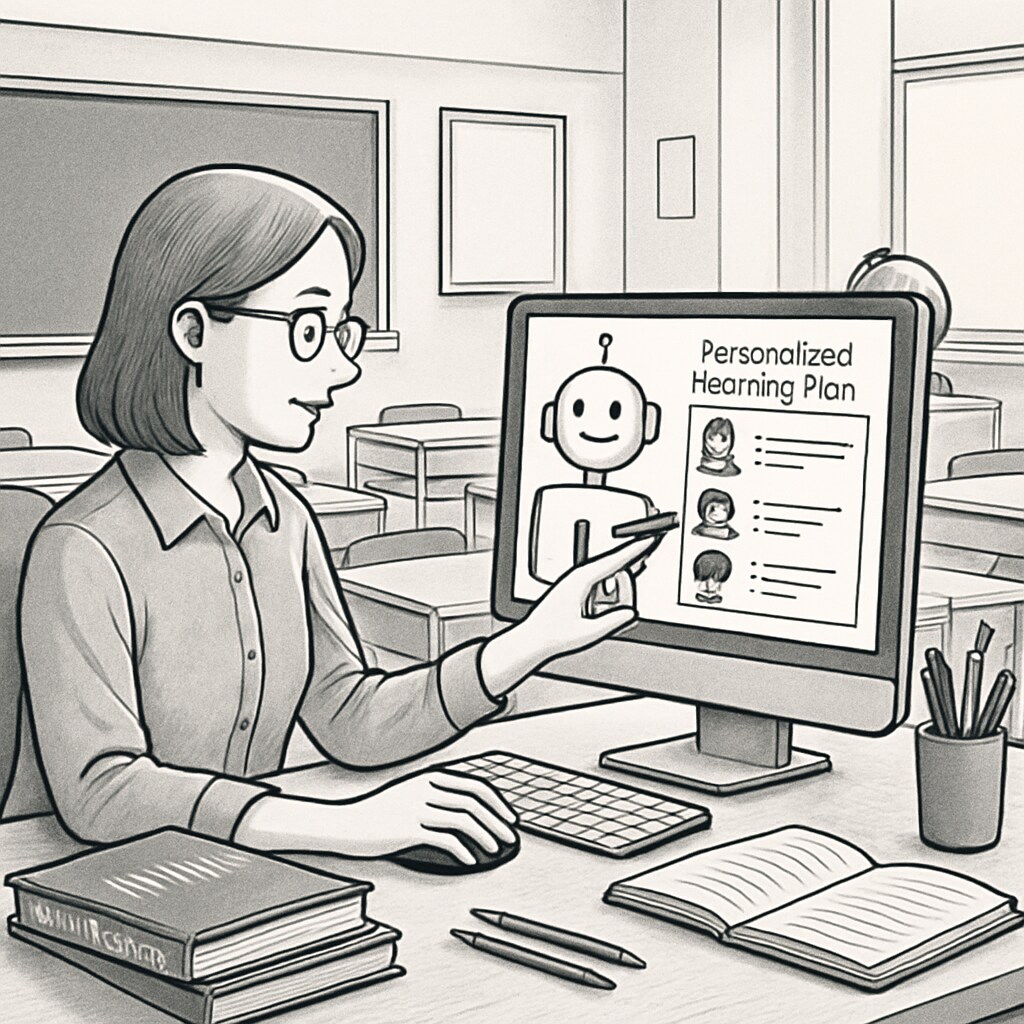The rapid adoption of AI in education is reshaping how teachers conduct their roles, challenging their professional value and salary frameworks. As AI tools streamline traditional tasks like grading, lesson planning, and even personalized coaching, many are asking: how will this technological revolution affect the future of teaching as a profession? Will teachers remain indispensable in the AI-driven classroom? This article explores the implications of AI education, teacher value, and salary reassessment, offering insights into the evolving dynamics of the industry.
How AI is Transforming the Role of Teachers
AI has introduced groundbreaking changes to educational systems worldwide. For instance, AI-powered tools like adaptive learning platforms can tailor lessons to individual student needs, minimizing the one-size-fits-all approach. These systems analyze a student’s strengths and weaknesses, providing personalized feedback that was once a teacher’s primary responsibility.
Furthermore, automated grading software reduces the time teachers spend evaluating assignments, freeing them to focus on higher-order tasks such as mentoring or emotional support. However, these advancements raise questions about the necessity of traditional teaching roles. If AI can perform key tasks more efficiently, will schools and institutions begin to reassess the importance—and compensation—of teachers?

Challenges in Evaluating Teacher Value in an AI-Driven World
The introduction of AI in education blurs the lines between human and machine contributions. Teachers have long been valued for their ability to inspire, empathize, and adapt to unique classroom dynamics. Yet, AI systems excel in consistency, scalability, and data-driven decision-making. As a result, schools may face a dilemma: how do you measure the intangible yet critical qualities that human teachers bring versus the efficiency AI delivers?
Some experts argue that AI should act as a complement rather than a replacement for teachers. For example, while a machine can provide instant feedback, it cannot fully understand a student’s emotional state or foster their creativity. Teachers’ ability to create a nurturing environment remains irreplaceable, but quantifying this value for salary assessment remains complex.
In addition, salary structures may shift to prioritize roles that integrate AI management and oversight. Teachers who adapt to these technologies and leverage them effectively could see a rise in demand—and potentially higher compensation.

Economic Impacts of AI on Teacher Salaries
As AI reduces the need for certain manual tasks, institutions may reconsider the allocation of budgets for teaching staff. This could result in a bifurcation of roles: highly skilled educators commanding premium salaries for specialized tasks, while entry-level positions face stagnating wages or even reductions.
For example, according to a study by the World Economic Forum (World Economic Forum Reports), AI’s impact on education may lead to a redistribution of resources, where funding shifts from personnel-heavy budgets to technology investments. Teachers might also face increased competition as institutions explore cost-effective AI solutions.
However, there’s a counterargument suggesting that AI’s efficiency could allow schools to reinvest savings into upskilling teachers, ensuring they remain central to the educational experience. Resources might be redirected to train educators in AI integration, providing them with tools to enhance their effectiveness rather than replace them.
Preparing for a Future Powered by AI in Education
As AI continues to evolve, the education system must adapt to ensure teachers remain a vital part of the learning process. Policymakers and educators alike need to focus on creating frameworks that support teachers in coexisting with AI technologies. Collaboration, rather than competition, should be the guiding principle.
- Invest in teacher training programs focused on AI tools and their applications.
- Reevaluate compensation models to reward teachers for AI-related expertise.
- Develop ethical guidelines that define the boundaries of AI in education to protect teacher roles.
- Encourage interdisciplinary approaches that combine technological proficiency with traditional teaching skills.
By proactively addressing these challenges, educators can ensure their profession adapts to the changing landscape while retaining its core value: shaping future generations.
Readability guidance: Use short paragraphs, lists, and clear transitions to maintain reader engagement. Incorporate external links to authoritative sources and ensure the article remains neutral in tone.


